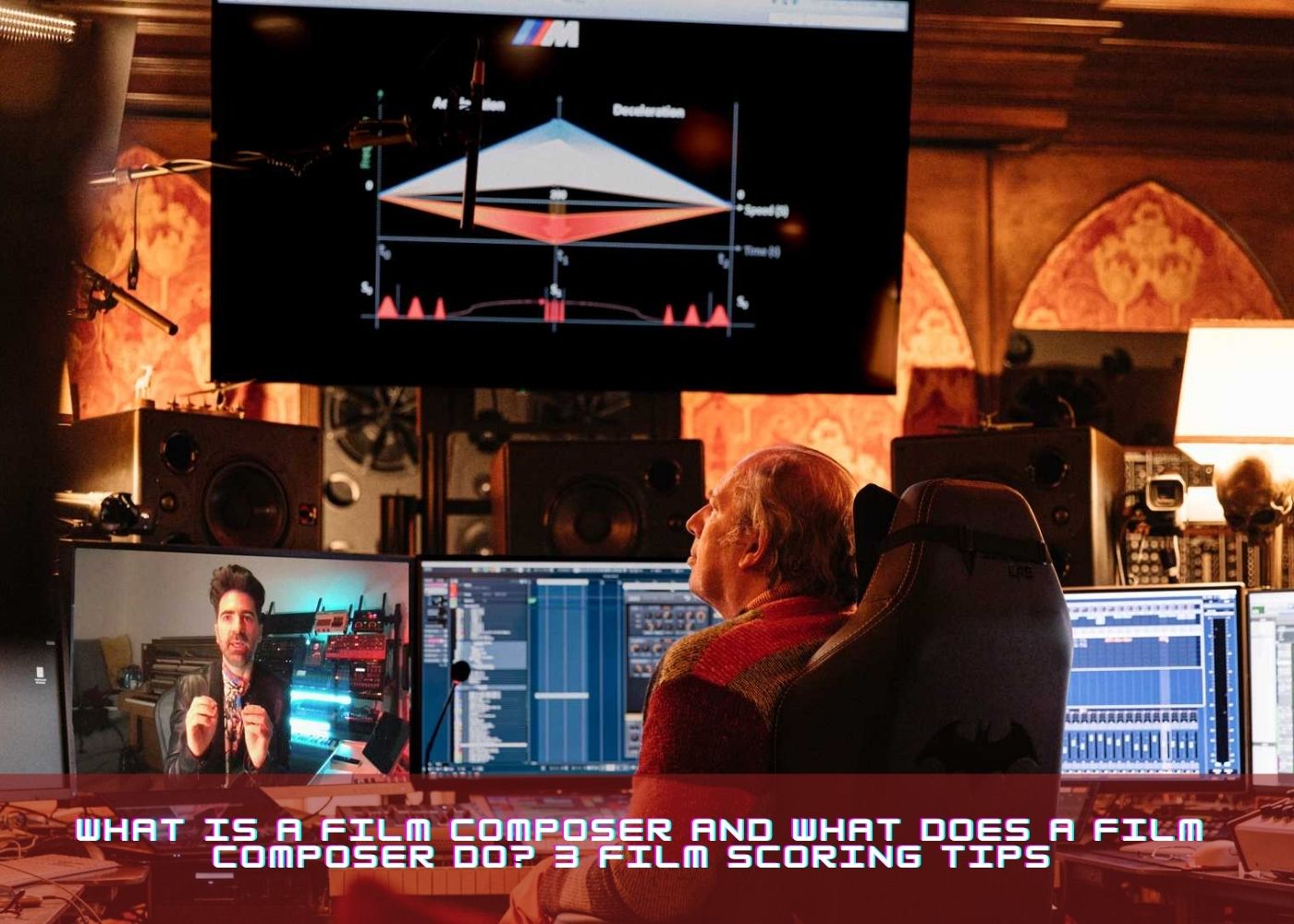The history of film music predates that of film language. When movies were first being displayed in theatres, the technology did not allow for an audio track to accompany the visuals. The films did, however, feature music, which was provided by live instrumentalists who performed inside the cinema.
Audiences could hear the dialogue for the first time after engineers managed to add an audio track to film reels, but the music remained. It simply transitioned from live theatre performance to a recorded performance incorporated into the visual images, which happened gradually at first. The theatre's live instrumentalists were suddenly no longer in charge of the music. A member of the filmmaking crew, the film composer, was in charge of it.
What Does a Film Composer Do?
The film score, which is composed by a film composer, is the musical score that goes with a film. There are three types of music here:
1. Diegetic music is music that is used to create a specific atmosphere. The characters in the depicted scene can hear music. Consider a scene in which a movie character attends a parade featuring marching bands. Those bands' music has a diegetic quality to it.
2. Non-diegetic music is music that isn't intended to be played during a movie Known as the underscore, this is the most prevalent type of film music. Music that the characters in a movie are unable to hear. Consider the strained vibrating strings in a horror film's haunted basement scene. Or when two lovers kiss in an old-fashioned romance, the harp arpeggios swell.
3. Songs. Songs, both diegetic and non-diegetic, are used to score some films. Diegetic songs are used in movie musicals, but non-diegetic music has become popular since the 1970s.
Big-budget Hollywood studio films have frequently mixed traditional underscore with a featured song that has been issued as a single for radio or streaming during the past several decades. Titanic, a 1997 film featuring a score by James Horner and the song "My Heart Will Go On," written by Horner and Will Jennings and performed by Celine Dion, is an excellent example of this. Armageddon, from 1998, had a Trevor Rabin score but is mainly recognized for Diane Warren's song "I Don't Want To Miss A Thing," performed by Aerosmith.
What is the Function of a Film Composer?
A film composer is increasingly being held accountable for all aspects of the film's original music. Among them are:
1. Keeping track of all facets of a movie's original music budget.
2. Hires Musicians and personnel required.
3. Meeting with the director of the film to "spot" it for all the locations where music should be included.
4. Writing and recording demos to pitch different themes to the director.
5. Composing the film's music, which sometimes involves a wide range of tempos and time signatures to coordinate with different action sequences within a scene. (Action films and cartoons, for example, demand more sound/picture synchronization than other genres.)
6. Manage the music recording, whether it's with live musicians or software instruments controlled by a MIDI keyboard. In low-budget films, the composer may be personally responsible for performing all of the music utilizing the software.
7. Taking notes from the rest of the production crew and replying to them. Most film composers will insist on receiving remarks directly from the director of the picture, but in other situations, other members of the crew (particularly producers) may be allowed to do so.
8. Creating a final version of the score that includes all remarks and edit requests, as well as a final mastered version of the soundtrack.
In some situations, a film composer will develop a different score to accompany the trailer, and none of the film's themes may be heard during the trailer. There are, however, production businesses that specialize in film trailers and may have in-house composers or licensed music libraries.
Hans Zimmer's 3 Film Scoring Advice
Hans Zimmer, the Academy Award-winning composer behind films including Pirates of the Caribbean, Interstellar, Gladiator, Inception, Dunkirk, and The Dark Knight, has a wealth of knowledge about music and the film industry. Zimmer offers some advice on writing a cinematic score in the following video.
1. Begin with the basics and show the movie to your guests. A simple melody kicks off your process. It's your job as a composer to come up with a unique yet familiar theme that propels the plot ahead. The topic should tell the director's parallel story, not just exist as a notion. Use this as your only constraint while creating the theme, but otherwise, be as creative as you like.
2. Make musical themes based on the characters in the film. It's all about learning about their history, their ambitions and dreams, and any pivotal events that shaped who they are today. Understanding their journey and how they react to the challenges they face will aid in the development of musical themes. Connect with your characters and uncover common ground so you may create a theme for them based on your imagination and emotional reality.
3. Keep in mind that the movie is ultimately directed by the filmmaker. Committees do not produce films. It's your job to follow the director's direction and come up with a musical vision that everyone can agree on. You may overlook vital subtext that explains the director's goal if you leap into analyzing music directly, or even technically. Hans has a practice of starting conversations with filmmakers as soon as possible, allowing the conversation to dictate how the music will shape the plot.
We are a fully operational content marketing agency based in Dubai. We are committed to developing effective content and strategies for corporate brands seeking to stand out in the online world.







